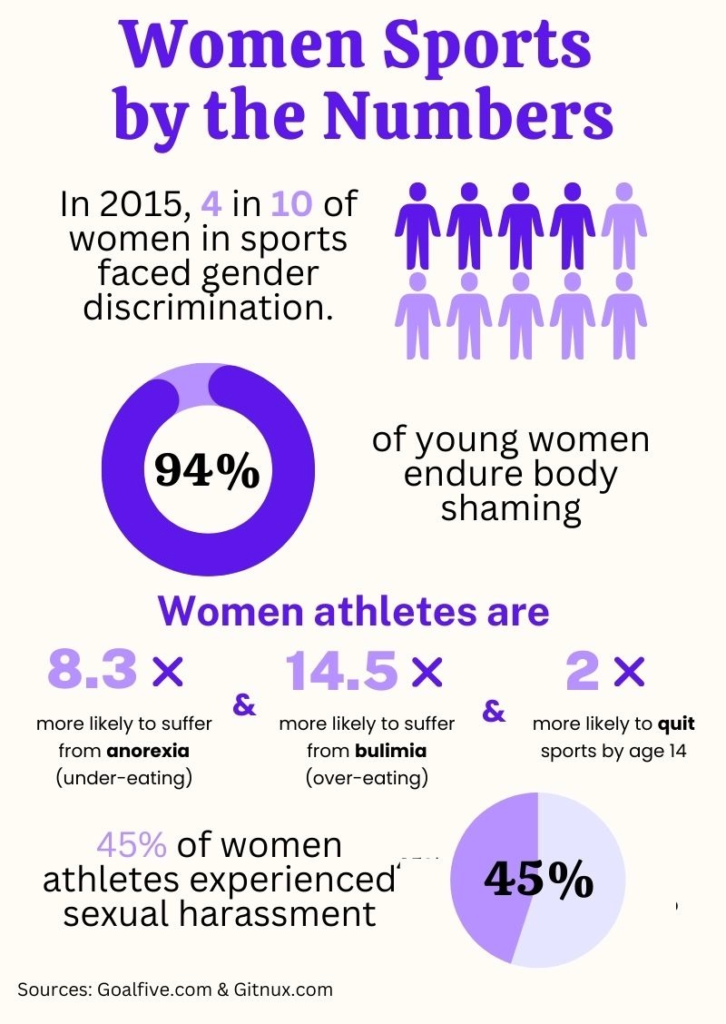
By Annabel Lee
Staff Writer
At Super Bowl LVII on Feb. 11, Dove aired an advertisement raising awareness of the importance of girls’ involvement in sports. As part of the “Keep Her Confident” campaign in partnership with Nike, the campaign broaches the importance of body confidence for girls in sports.
Gender equity in sports means equal playing spaces for people of all genders both on and off the field. Girls need safe and supportive spaces to participate in sports.
Oftentimes girls’ lack of involvement in sports during later teenage years is dismissed as lack of interest or skill, however, in truth, many girls drop out of sports due to struggles with body image. According to a study done by Dove in partnership with Nike, 45% of girls quit sports by age 14 due to low body confidence, the number one reason why girls quit at such young ages.
Growing up, girls are continually told what they should or shouldn’t look like. Media, parents, mentors and peers often force unrealistic body and beauty standards onto girls. We are told to be fit but not bulky. Work out, but don’t overdo it. Be toned, don’t show fat, because that’s unhealthy, or muscle because that’s not feminine. These expectations and unrealistic ideals lead girls to develop a higher awareness of their body and body image, no longer making sports just about athletic ability.
However, body shaming and a lack of safe spaces for girls in sports do not only cause surface-level issues. Low body confidence as a result of these outside factors often leads girls to develop unhealthy relationships with food and their weight.
Eating disorders are already more prevalent in girls, generally, and athletes as a whole, making female athletes all the more susceptible to such disorders.
According to a 2018 Journal of Clinical Sports Psychology study, up to 45% of female athletes, and 19% of male athletes, struggle with eating disorders.
This means female athletes are more than twice as likely to deal with eating disorders, which can be detrimental to their physical and mental health, as well as their athletic performance.
Furthermore, struggles with body image stemming from safety issues also contribute to girls’ hesitation to continue sports involvement. Predatory behavior in girl sports is quite prevalent. According to the UN, nearly 21% of professional female athletes have experienced child sexual abuse in their sport. In recent years numerous women have come forward with cases of sexual abuse, most notably the U.S. Women’s Gymnastics team’s testimonies against former sports medicine physician Larry Nassar.
When spaces where athletes are supposed to be treated and cared for are abused like this, it can lead girls to struggle with body confidence and quit or lose love for their sport.
Personally, as a rock climber who participated in indoor bouldering for five years now, I experienced the insecurities that can easily arise from being a female athlete. I was fortunate enough to grow up with a positive body image and I am very proud of my accomplishments, so I was surprised at my wavering body confidence. As climbing requires significant upper body strength and training, it led me to become more conscious of my body image. Even though I know that women can be strong, I still internalized the idea that muscles aren’t feminine.
However, seeing body-positive fitness creators and a growing space for women to celebrate all body types in the gym and fitness world, combats this struggle. I still carry these insecurities with me, yet I will never let them speak louder than my pride in being able to do over ten pull-ups or climb high climbing gym grades.
To achieve true gender equity in sports we, as a society, must cultivate safe spaces for girls to participate and play sports without worrying about their bodies. Encourage girls to be proud of their bodies and celebrate their sports accomplishments, inspiring a new generation of bold, confident female athletes.
